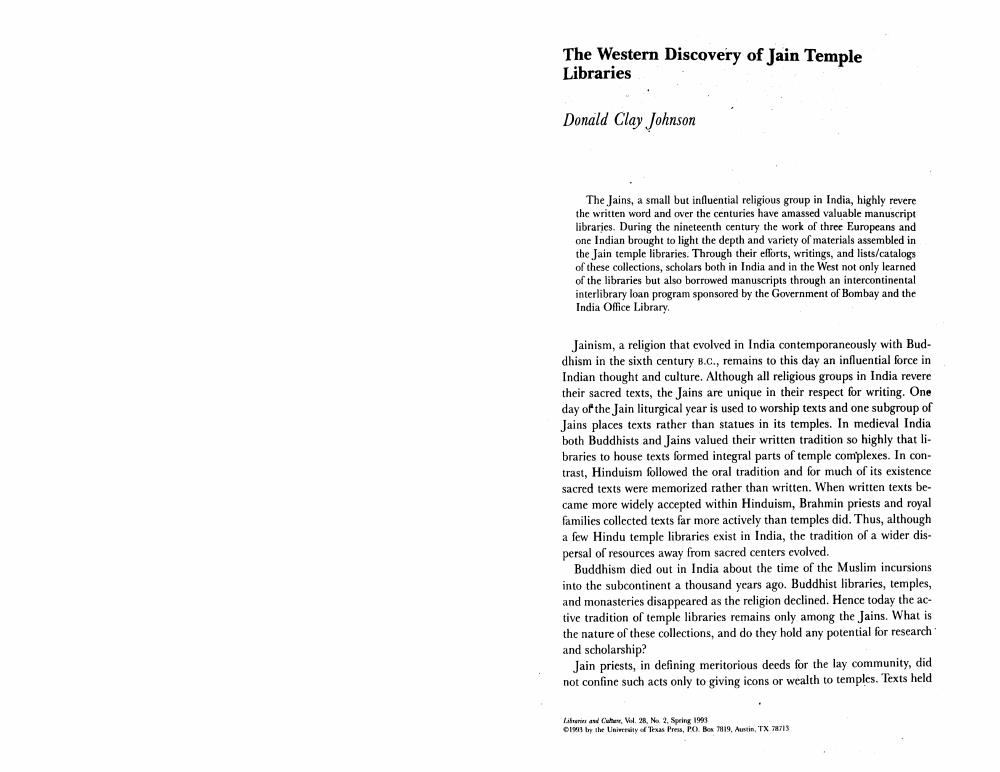Book Title: Western Discovery Of Jain Temple Libraries Author(s): Donald Clay Johnson Publisher: Donald Clay Johnson View full book textPage 1
________________ The Western Discovery of Jain Temple Libraries Donald Clay Johnson The Jains, a small but influential religious group in India, highly revere the written word and over the centuries have amassed valuable manuscript libraries. During the nineteenth century the work of three Europeans and one Indian brought to light the depth and variety of materials assembled in the Jain temple libraries. Through their efforts, writings, and lists/catalogs of these collections, scholars both in India and in the West not only learned of the libraries but also borrowed manuscripts through an intercontinental interlibrary loan program sponsored by the Government of Bombay and the India Office Library Jainism, a religion that evolved in India contemporaneously with Buddhism in the sixth century B.C., remains to this day an influential force in Indian thought and culture. Although all religious groups in India revere their sacred texts, the Jains are unique in their respect for writing. One day of the Jain liturgical year is used to worship texts and one subgroup of Jains places texts rather than statues in its temples. In medieval India both Buddhists and Jains valued their written tradition so highly that libraries to house texts formed integral parts of temple complexes. In contrast, Hinduism followed the oral tradition and for much of its existence sacred texts were memorized rather than written. When written texts became more widely accepted within Hinduism, Brahmin priests and royal families collected texts far more actively than temples did. Thus, although a few Hindu temple libraries exist in India, the tradition of a wider dispersal of resources away from sacred centers evolved. Buddhism died out in India about the time of the Muslim incursions into the subcontinent a thousand years ago. Buddhist libraries, temples, and monasteries disappeared as the religion declined. Hence today the active tradition of temple libraries remains only among the Jains. What is the nature of these collections, and do they hold any potential for research and scholarship? Jain priests, in defining meritorious deeds for the lay community, did not confine such acts only to giving icons or wealth to temples. Texts held latten and whe, 28. Na 2. Speine 1993 OM by the Unity Press, PO 1819, Austin, TX 78713Page Navigation
1 2 3 4 5 6 7 8
